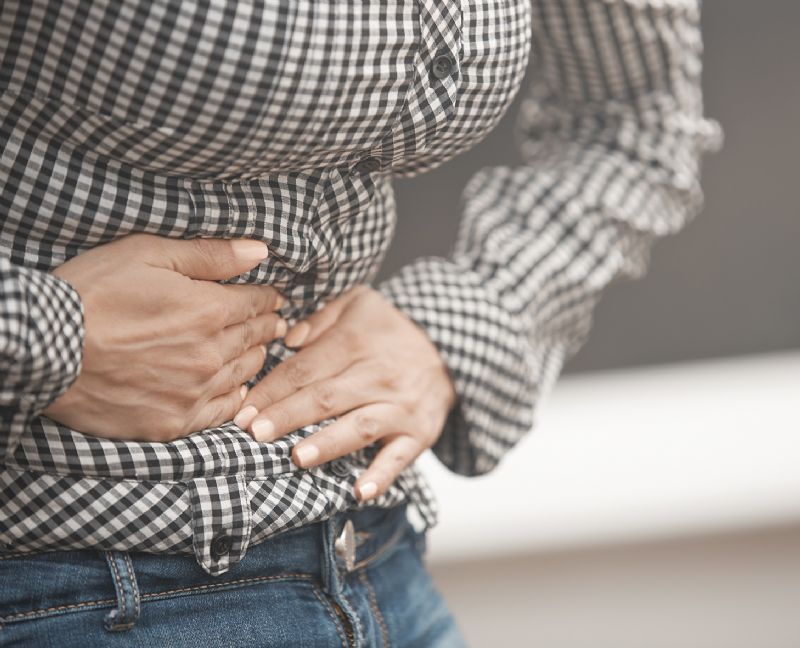- Home
- News, Articles & Reviews
- All Health & Beauty
- Looking Good, Feeling Great
- Medical Health
- Mirror Mirror on the Wall
- Style & Fashion
- General
- Vintage & Sustainable Fashion
We are hiring! Please click here to join our growing magazine delivery team in Gloucestershire!
Areas
Health & Beauty
Archive

Crohn’s disease
All Areas > Health & Beauty > Medical Health
Author: Kirsty Lilley, Posted: Monday, 25th September 2023, 09:00
Crohn’s disease is an inflammatory bowel condition that causes chronic inflammation of the gastrointestinal tract. The disease can affect any part of the gastrointestinal tract from the mouth to the anus, but most commonly affects the end of the small bowel, often referred to as the ileum, and the beginning of the colon. It can affect the entire thickness of the bowel wall.
If you are diagnosed with Crohn’s disease it is important to know which part of the GI tract is impacted, as this may impact any complications you experience.
There are a variety of symptoms
The most common form of Crohn’s disease is known as ileocolitis and it affects the end of the small intestine, known as the terminal ileum, and the large intestine, also called the colon. Symptoms may include diarrhoea and cramping, pain in the lower or lower right part of the abdomen, and significant weight loss due to problems with absorption of food and nutrients.
The disease can occur at any age but is most commonly diagnosed in adolescents, and adults between the ages of 20 and 30. Although there seems to be a genetic component of the disease, it is not possible to fully predict who will go on to develop the condition. Crohn’s disease can impact people from all ethnic backgrounds.
Other symptoms of the disease can include persistent diarrhoea, rectal bleeding, an urgent need to move the bowels, abdominal cramps and pains, sensation of incomplete bowel emptying, and constipation which may lead to a bowel obstruction. Keeping a diary of these symptoms may help when you visit the GP.
Treatments can help you lead a fulfilled life
Although the disease is of a chronic nature, a combination of available treatments can help you stay in control of the symptoms and help you lead a rich and fulfilled life. Each person’s experience is different and a combination of medication, alterations in diet and nutrition, and sometimes surgical options to repair or remove affected areas of the gastrointestinal tract will help.
Medication options are designed to suppress the immune system’s abnormal inflammatory response, which offers relief from fever, diarrhoea and pain, and also allows the intestinal tissues to heal.
It is important to work with health care professionals to find a diet that will include enough calories and nutrients to keep you healthy and well-nourished, whilst not inflaming the gut once more. It is a balancing act which requires making healthy choices and avoiding triggers that make the symptoms worse.
Your GP may order diagnostic tests
If you are concerned about having any of the symptoms mentioned in this article, it is best to see your GP who will be able to listen to your concerns and, if needed, order diagnostic tests to confirm the disease or rule out other possible conditions.
There is no single test to confirm the disease, but diagnostic options may include endoscopy and imaging procedures. The GP may also want to get a biopsy of the colon or another area of the GI tract. During the biopsy a small piece of tissue is removed from the inside of the intestine for further testing and analysis.Copyright © 2024 The Local Answer Limited.
Unauthorized use and/or duplication of this material without express and written permission from this site's author and/or owner is strictly prohibited. Excerpts and links may be used, provided that full and clear credit is given to The Local Answer Limited and thelocalanswer.co.uk with appropriate and specific direction to the original content.More articles you may be interested in...


© 2024 The Local Answer Limited - Registered in England and Wales - Company No. 06929408
Unit H, Churchill Industrial Estate, Churchill Road, Leckhampton, Cheltenham, GL53 7EG - VAT Registration No. 975613000You are leaving the TLA website...
You are now leaving the TLA website and are going to a website that is not operated by us. The Local Answer are not responsible for the content or availability of linked sites, and cannot accept liability if the linked site has been compromised and contains unsuitable images or other content. If you wish to proceed, please click the "Continue" button below:




